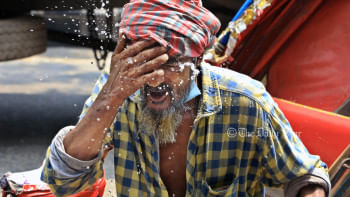What does an 8-year-old’s 'rape' say about us?

The harrowing story of an eight-year-old fighting for her life after an alleged rape in Magura raises a haunting question—are we doing enough to protect our women and children?
It was not an isolated incident but part of a grim trend of sexual violence that has gripped the country. Reports of rape, gang rape, sexual assault and harassment have become so frequent that we seem to have become desensitised. Every new case shakes the collective conscience, only to fade into oblivion until another tragedy strikes.
In this latest case, the child had gone to visit her elder sister's in-laws, a place that should have been safe for her. Instead, she was assaulted and left in a critical condition. Like in many other cases, police are suspecting people within the household suggesting another instance of domestic violence. This is not just a failure of security but a collapse of trust within the very institutions that are meant to protect the vulnerable—family and society.
Violence against women and girls is not just limited to rape cases like this one. Women face harassment on the streets, in public transport, workplaces, and even on university campuses. Their clothing, behaviour, and lifestyle choices become reasons for judgment and abuse. A woman smoking in public can be met with scorn and, as we found out recently, even grievous assault, while another in a crowded bus might be groped. Yet these everyday acts of violence rarely spark outrage. Society has become alarmingly numb, reacting only to instances of extreme brutality.
The question remains—why do perpetrators feel emboldened? The answer lies in our collective failure. Weak law enforcement, prolonged legal proceedings, and a culture of victim-blaming have emboldened criminals. While arrests might be made, convictions remain rare, allowing offenders to roam free and repeat their crimes. This impunity ensures that women and children remain vulnerable.
It is time to move beyond passive outrage. Stronger laws alone will not solve this crisis unless they are enforced with urgency and sincerity. Community-driven vigilance, neighbourhood and community initiatives, and zero tolerance for sexual violence must be prioritised. Most importantly, there needs to be mass mobilisation—a strong, sustained protest movement to ensure that justice is not just an occasional demand but a national priority. Our backs are against the wall. The time to act is now.

 For all latest news, follow The Daily Star's Google News channel.
For all latest news, follow The Daily Star's Google News channel. 








Comments